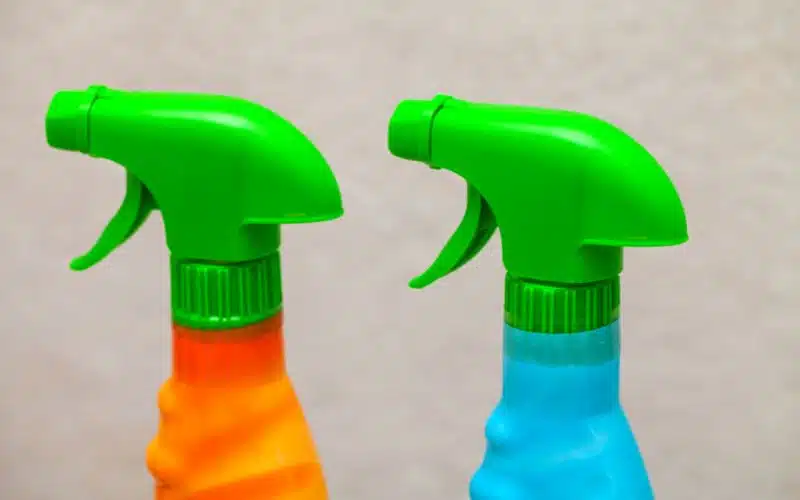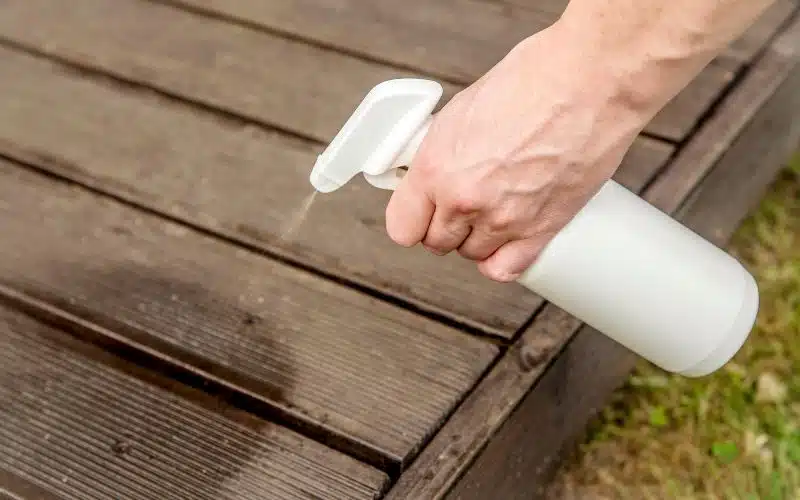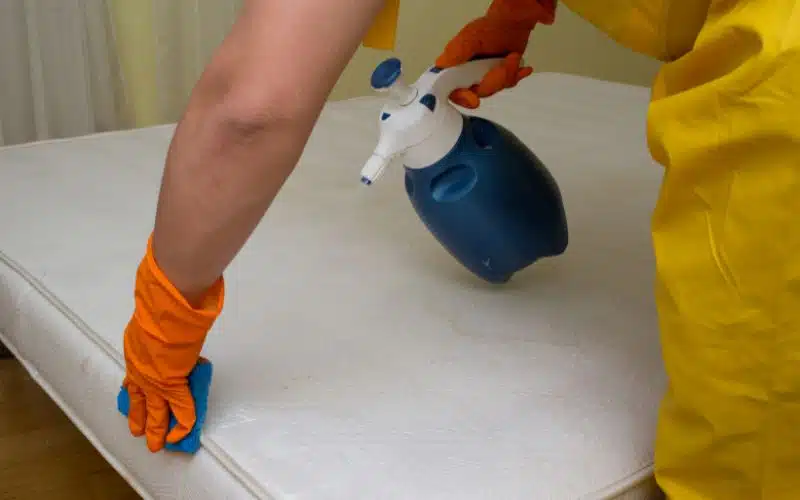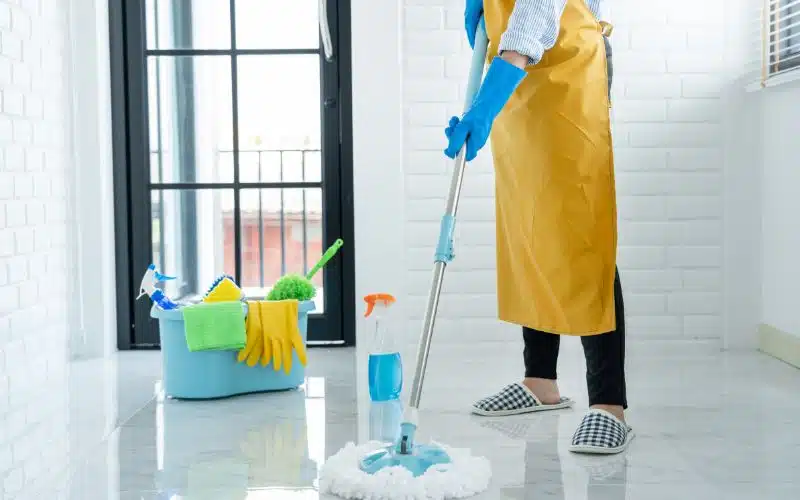Including just a little vinegar in your diet can help control your blood sugar. And at home, it can help clear up bruises from your skin, clean your bath, clean rust from tools, and the list goes on.
But even after cleaning, I know that you would agree that the evaporation rate still matters.
Well, I will advise that you keep on your toes during this article because we will see if vinegar does evaporate or not.
Vinegar evaporates at room temperature while boiling, when in the sun, and when you apply heat to it. And it has a reputation for evaporating almost as fast as water because its hydrogen tends to be weaker than water’s hydrogen bond. However, vinegar has a boiling point of 213 degrees Fahrenheit; although it evaporates fast, the smell evaporates slowly.
Can Vinegar Evaporate?
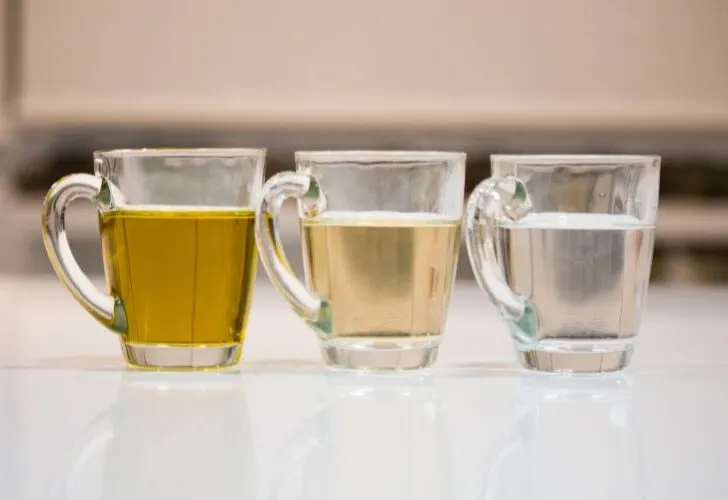
For your ordinary household vinegar, you can form it by diluting acetic acid in the range of between 5% to 45%. Yes, of course, like most liquids, vinegar does evaporate.
Your household vinegar does have a boiling point of 213 degrees Fahrenheit, while those with higher concentrations of acetic acid will have higher boiling points.
When you apply heat to vinegar, the water is the first to evaporate. Meanwhile, there will be an increase in the level of acetic acid, which will increase the boiling of the vinegar.
During this evaporation, you will observe both water and acetic acid vapor leave the solution living with no residue, especially if it is pure vinegar.
Vinegar, if left open, evaporates in time. And this is because it contains acetic acid, which will evaporate when you leave it open as it loses acidity.
And this is what makes vinegar evaporate faster than water at room temperature. Whereas, if you keep vinegar closed up tightly in a container, it should last a very long while for you.
Unless you are a scientist who knows what you are doing, I will advise against boiling or heating your household vinegar.
And this is because, at high temperatures, the concentrated acetic acid becomes corrosive and even burns metals or rocks.
You must also try as much as possible to limit the use of vinegar in cleaning your sofa, drain clogs, countertops, oven, or even tiles.
Note the boiling point of acetic acid is 244.4 degrees Fahrenheit. But, when diluted with water which is 212 degrees Fahrenheit, to form vinegar, the boiling point of vinegar becomes 213 degrees Fahrenheit.
And this is so because, during evaporation, some of the acetic acids evaporate with the water vapor under pressure.
What Temperature Does Vinegar Evaporate at?
There is no specific or required temperature for vinegar to evaporate. For instance, vinegar can evaporate after reaching a boiling temperature or even at room temperature.
However, other ways can cause vinegar to evaporate, like the sun, heating, or cooking. As regards boiling point, vinegar evaporates at 213 degrees Fahrenheit.
This boiling point is because water has a boiling point of 212 degrees Fahrenheit and the existence of impurities in water increases its boiling point.
So, vinegar’s evaporation temperature of 213 comes from the fact that vinegar is a solution of acetic acid and water.
But when it comes to evaporation at room temperature, the temperature is between 68 to 77 degrees Fahrenheit.
So when you open the vinegar bottle, you will perceive its smell, indicating that the vinegar is evaporating.
Although this may be slow if it continues, the remaining vinegar becomes much more concentrated.
To understand the evaporation of vinegar, we will also get to understand the shelf life of your vinegar.
First, you should be sure that vinegar does not expire, although it may have a best before date. So, you can still use it after the best before date.
It does not need refrigeration but remains self-preserving due to its acid nature. Nevertheless, the most challenges often result from poor storage, which results in poor quality vinegar.
And if you allow the acetic acid of your vinegar to absorb water from the air, there will be changes in the flavor of your vinegar.
There are different types of vinegar, and the table below will show each and its shelf life;
| Type | At Best Quality | Usability and Safety |
|---|---|---|
| Distilled white vinegar | Unlimited | Unlimited |
| Apple cider vinegar | 5 years | Unlimited |
| Balsamic vinegar | 2- 3 years | Unlimited |
| Rice vinegar | 2 years | Unlimited |
| Red and white wine vinegar | 2 years | Unlimited |
How Long Does It Take for Vinegar to Evaporate at Room Temperature?
For vinegar under room temperature of 68 to 77 degrees Fahrenheit, evaporation will keep occurring after every 1.2 hours.
But another fantastic thing is you can also store vinegar at room temperature not minding the pantry or fridge.
Instead of a refrigerator, you can place the bottle in a cupboard or drawer, but if you must put it where there is light, the bottle should be covered entirely or enclosed with a cloth.
The ideal reason is to retain your vinegar‘s original flavor for as long as possible until it reaches its best date.
So before placing your vinegar anywhere you intend, ensure that its bottle is tightly and properly closed.
There will come a time when you will see things floating in your vinegar; it is called the “mother of vinegar” and is not harmful if consumed.
The mother of vinegar is the combination of bacteria and yeast due to fermentation. Furthermore, if the mother of vinegar appears in your vinegar, do not throw it away; shake the bottle and keep using it.
And although you may not find it comfortable consuming it, the mother of vinegar is a probiotic that supports the digestive system.
Does Vinegar Evaporate Faster than Water?
Comparing water and vinegar evaporation rate is tricky because both liquids evaporate at almost the same temperature.
But notwithstanding, water tends to evaporate far faster than vinegar, and there seems to be a good reason for this.
As you know, vinegar is the household name for diluted acetic acid, which usually carries or contains 4 to 6 percent acetic acid.
And with regards to the point mentioned in the second paragraph of the second subtopic, it is also true here that the existence of impurities increases the boiling point of water.
Nevertheless, vinegar evaporates faster than water at room temperature because vinegar’s hydrogen bonds are weaker than water‘s.
And this is why when you open a bottle of vinegar, you begin to perceive a smell that gives ample evidence of its evaporation.
Therefore, the presence of the acetic acid increases boiling points, making water evaporate faster than vinegar.
While water evaporates at 212 degrees Fahrenheit, vinegar evaporates at 213 degrees Fahrenheit.
Nevertheless, the truth is if you keep diluting your vinegar, you may bring the boiling point to the same range as that of pure water.
But to tell the rate of evaporation of liquids from their boiling points, the table below will help you to understand what this truly means.
| Liquid | Boiling Point (oF) |
|---|---|
| Nail polish | 132 |
| Alcohol | 173 |
| Water | 212 |
| Vinegar | 213 |
| Oil | 573 |
Does Vinegar Leave an Evaporation Residue?
During evaporation, the water and acetic acid vapor leave simultaneously, and if it is pure vinegar, it will evaporate completely, leaving no residue.
And this fact is why if you should use it cleaning your house or mopping the floor, you do not need to rinse it again.
Not to mention that as you are cleaning, the vinegar on the surface will evaporate very quickly. The critical question is, what if you encounter a residue and need to clean it off?
What would you do? Well, the solution to this issue will not require much work from your end because you only need a little diluted apple cider vinegar and salt to get the residue off.
After getting the diluted apple cider vinegar, you would also get a dishcloth which you will use together with the solution to clean up the residue.
Then you pour two tablespoons of salt into the vinegar before using it to clean the residue.
While using vinegar to clean your house, there are a few things you should be mindful of, like wood and paper.
For example, if you use vinegar to clean up wooden floors and furniture, there will be damage with time. And the surfaces will also become dingy due to the acidity of the vinegar.
In the case of paper, after preparing a dilute vinegar solution, ensure you use clear vinegar since most types of vinegar will stain your paper.
While preparing the solution, do it away from the paper to prevent any additional stain.
Conclusion
Vinegar evaporates even faster than water at room temperature, while water is faster with boiling point. And it evaporates at 213°F and exists in five types.
A pure vinegar does not leave residue, while you can clean those that leave residue with diluted apple cider vinegar.

